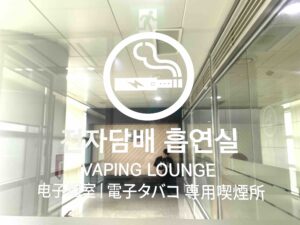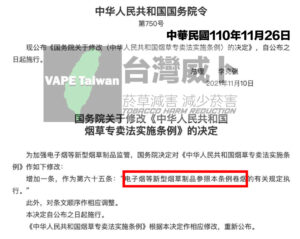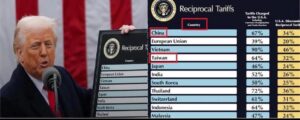U.S. Tariffs Slashed to 15% — Will Taiwan’s Treasury Be Drained?

圖:台灣威卜 菸草減害網路媒體 VAPE TAIWAN 合成。
Wang Yu-Yang Proposes Tapping Gray Industries for Billions in New Tax Revenue
A previously undisclosed trade agreement between Taiwan and the United States has recently leaked, drawing widespread attention from political and financial circles. According to sources, the U.S. has agreed to reduce the average import tariff on Taiwanese goods from 20% to 15%. In return, Taiwan must make significant concessions, including committing to greater U.S.-Taiwan investment totals, expanding Hon Hai’s operations in the U.S., and lowering import tariffs on American pork, beef, and automobiles.
While this move is seen as a major milestone in strengthening U.S.-Taiwan economic ties, scholars and fiscal experts are warning about its “hidden costs.” Tariffs have long been a key source of revenue for Taiwan’s national treasury. With lowered tax rates and increased imports, concerns have arisen about whether the administration of President Lai Ching-te (DPP) is prepared with alternative funding sources — namely, tapping into gray industries.
Wang Yu-Yang’s Fiscal Solution: Expand Health Risk Taxation to Unlock Billions from Gray Markets
To address the looming fiscal gap, Wang Yu-Yang, a tobacco harm reduction expert at the Taiwan Institute for Tobacco Harm Reduction and a WHO advisor, has issued a policy proposal. In his newly published report, Sustainable Financing for Taiwan’s Long-Term Care 3.0, Wang calls on the government to immediately expand taxation on harm reduction tobacco products — including e-cigarettes, heated tobacco, and nicotine pouches — by establishing a broad-based “Health Risk Tax” system.
According to Wang’s financial projections, beginning taxation in 2025 could yield the following annual revenues:
- E-cigarettes(Vape): $77M to $155M USD
- Heated tobacco: $109M to $124M USD
- Nicotine pouches: $16M to $31M USD
In total, this “Health Risk Tax” could generate over $300 million USD per year initially. With adjustments for inflation and rate indexing, Wang estimates annual revenue could reach $1.4 billion USD by 2030.
“These products are already widely circulated,” Wang emphasized, “but the lack of taxation has led to tax base erosion and the unchecked growth of gray markets. Now is the perfect time to plug the leaks and fortify public funds.”
Beyond Tobacco: Legalizing and Taxing Cannabis, Gambling & Sex Work Zones
One of the most controversial parts of Wang’s proposal is his call to “bring sensitive industries into the light.” He recommends that Taiwan evaluate the inclusion of high-debate but internationally taxed industries into the health risk taxation framework. These include:
- Cannabis (with future legalization, impose medical/recreational taxes)
- Designated sex work zones (modeled after Germany and the Netherlands)
- Gambling (both online and offline)
- Sugar-sweetened beverages, betel nut, and alcohol
Wang argues that, if properly regulated, these gray industries could generate hundreds of millions in additional tax revenue, helping to offset the losses from tariff concessions while also filling the funding gaps in Taiwan’s long-term care and healthcare systems.
A New Tax Model for Gray Industries: Not Funded by Vice, But Shared Responsibility
“We shouldn’t rely on smokers’ lungs to save the long-term care fund,” Wang said, “but we also can’t allow black markets to cannibalize our tax base.”
He urges the government to clearly earmark tax revenue collected from gray industries, ensuring transparency and designated usage. This would allow the public to understand that so-called “sin taxes” are actually being used to care for the elderly and improve public health.
If Taiwan can consolidate long-term care, health insurance, public health promotion, and community-based elder care into a unified fund — while aligning with international tax models such as those from the WHO, UK, or Canada — the nation will not only weather the current fiscal challenge but could also emerge as a regional leader in health finance reform.






